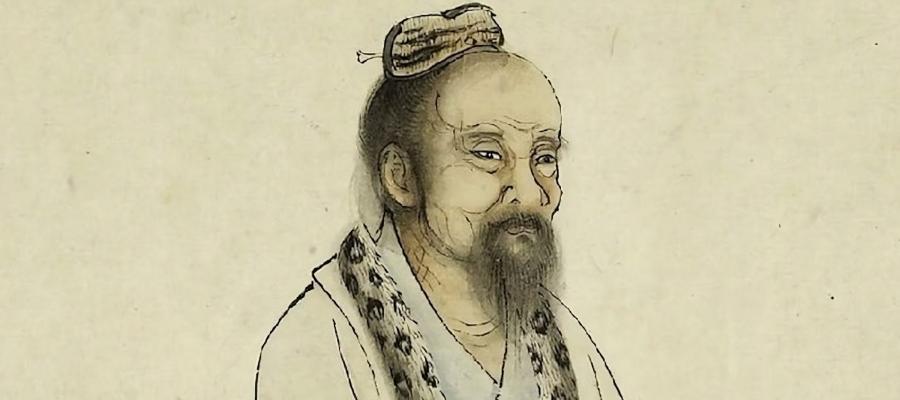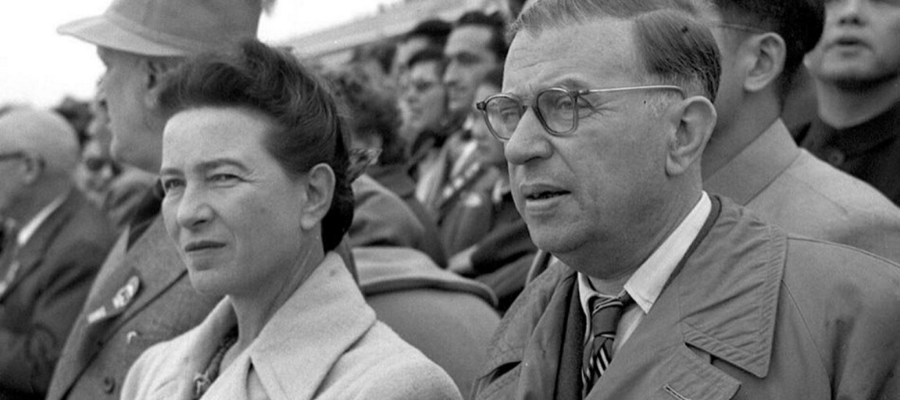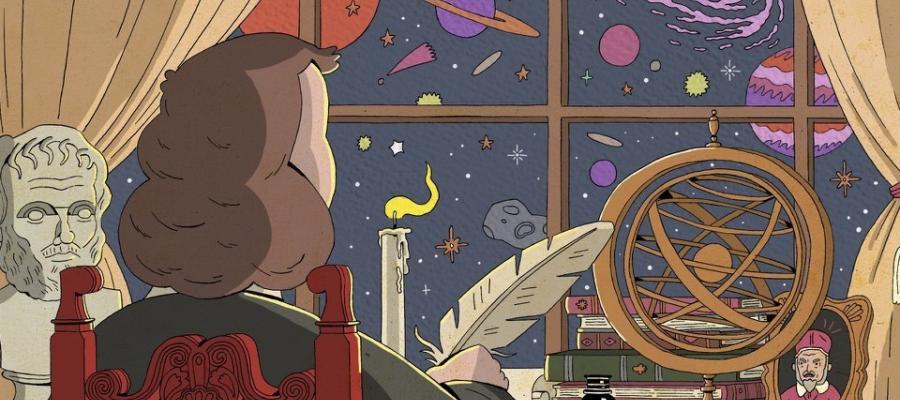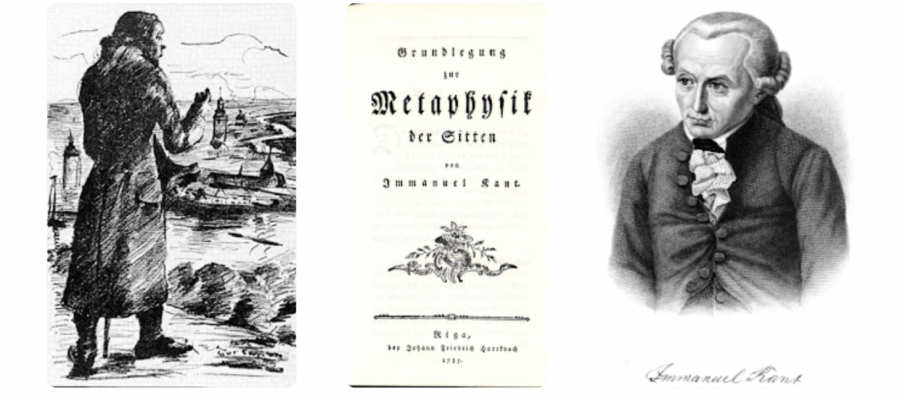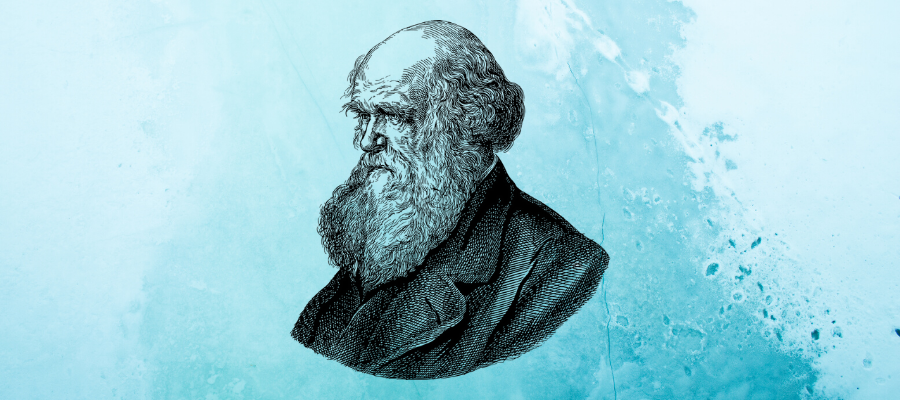The Tao of Zhuangzi
03
Nov 2023
Zhuangzi is a famous Taoist philosopher from fourth-century-BCE China, known for his brilliance, his paradoxes, and his pithy aphorisms. Here’s one:
“When people sleep in a damp place, they wake up deathly ill. But what about eels?
If people live in trees, they tremble with fear and worry. But how about monkeys?
Of these three, which knows what is the ‘right’ place to live?”
Zhuangzi’s Confucian contemporaries thought there was a single good way to be a human being: respect your elders, uphold order, perform all the proper rituals, be benevolent and responsible, and...
Do Philosophy For Its Own Sake, Not for a Job
13
Mar 2017
In these days of economic insecurity, it's not surprising that students thinking of majoring in philosophy have difficulty convincing their family and friends. A new website, created by professor of philosophy Jack Russell Weinstein, titled "Philosophy is a Great Major" tries to work around this by pitching the philosophy major as actually a great way to make money. The website touts Peter Thiel, a former philosophy major at Stanford, as a "philosopher king of Silicon Valley." According to the website, "Philosophy is economic stability. Philosophy is freedom." But isn't there something lost...
Read morePhilosophy Majors: Unexpectedly Employable
10
Jul 2017
Contrary to popular belief, a philosophy degree may be useful in the job market. Granted, engineering, pre-med and pre-law students have a clear-cut path after graduation. However, a philosophy education equips students with “critical thinking, precise analysis and cogent writing” says Christopher Morris, chair of the University of Maryland philosophy department, in an article in the Washington Post.The article argues that despite societal skepticism, philosophy majors perform better on exams for law, medicine and other graduate schools. They...
Read moreBeing Human is Like Being Here
26
May 2014
In my last blog posting, I explained that “human” is a folk-category that doesn’t map clearly and cleanly onto scientific categories like Homo sapiens, and that consequently, science can’t tell us what it means to be human. This time I’m going to consider some folk-conceptions of the human to see if they can offer us anything that’s more useful. One way to get a handle on folk-conceptions of the human is to focus on the phenomenon of dehumanization. When people dehumanize others they exclude them from the category of human, usually with horrifying results. We see...
Read moreDeconstructing the College Admissions Rat Race
03
Sep 2011
Getting into the college or university of your choice – especially if it's highly selective one -- has become more daunting and more stress-inducing than ever before. The odds are stacked against students from the start. Consider Stanford. This year we had just over thirty two thousand applications to fill about sixteen hundred freshmen slots. So we accepted just seven percent of those who applied. Those are astounding numbers. And Stanford's not alone. Harvard admitted seven percent of its applicants, while Yale admitted eight percent and...
Read moreSimone de Beauvoir
29
Feb 2016
Simone de Beauvoir was probably best known as a novelist, and a feminist thinker and writer, but she was also an existentialist philosopher in her own right and, like her lover Sartre, thought a lot about the human struggle to be free. As a philosopher trained in the analytic tradition, I have to admit, I don’t know a whole lot about existentialism, so I’m curious to discover on this week’s show with guest Shannon Mussett how Beauvoir’s feminist thought relates to her existentialist philosophy. Beauvoir’s most famous work was The Second Sex from 1949, a hugely influential...
Read moreIf God Is Dead, Why Isn't Everything Permitted?
26
Mar 2015
This week we're asking about Morality in a Godless World. There may or may not be a God; but there definitely is morality. So what’s the problem exactly? It's what Dostoyevsky said: if God is dead, then everything is permitted. That means no distinction between right and wrong and thus no morality. Now you can walk into any ethics class, on any secular campus in America, and you’ll find lots of philosophers talking about ethics and morality -- without ever mentioning a word about God. That suggests there’s a consensus among philosophers -- be they Utilitarians, Kantians...
Read moreFiction and Imaginative Resistance
19
Oct 2005
This post has been hanging in Limbo land for awhile, waiting for me to find time to get it finished. I haven't had much time to blog lately but hope to squeeze more blogging in. Also, I hope we can make a renewed push to get some of our on-air guests to contribute as well. Thanks to Steven Meyer for being our guest on recent show on the willing suspension of disbelief. Steve was the first English professor we've actually had on the program. Given that there can still be some hostility and talking at cross-purposes...
Read moreThe Value of a College Education
13
Jan 2017
Starting the week of January 22, we will be airing our episode about the value of a college education. It’s a show we performed and recorded back in October live in front of an audience of high school students at De Anza High School in Richmond, California. That school serves a very ethnically and economically diverse student body – a reality reflected by our audience. Beside the episode, which will be broadcast next week and available online starting the following week, you can hear the extended audio of audience questions that didn’t make the broadcast here. But we thought...
Read moreThe terror of death, and how to overcome it
30
Sep 2010
The title of this week’s program makes at least three assumptions that deserve to brought into the light of critical reflection: · That death is terror-inducing. · That being terrified of death is a bad thing. · And that overcoming the terror of death would be a good thing. One can take issue with each of them. Is death really terror-inducing? True, most people don’t want to die. But most people don’t walk around seized by the terror of death. Perhaps,...
Read moreThe Meanings of Spitzer’s Apology
29
Mar 2008
Nick Smith, J.D. and Ph.D., author of I Was Wrong: The Meanings of Apologies (Cambridge University Press, 2008)
Assistant Professor of Philosophy, University of New Hampshire
nick.smith@unh.edu
For a video of Spitzer's apology with this essay, see http://cupblog.wordpress.com/2008/03/17/parsing-spitzers-apology/
Elliot Spitzer’s recent statements accompanying his resignation as governor of New York provide an occasion to reflect on the meanings of apologies. I find apologies dizzyingly complex social rituals and in I Was Wrong: The Meanings of Apologies—...
#FrancisOnFilm: Green Book
25
Mar 2019
Green Book, which won the Oscar for Best Picture, just came out on Netflix and in various other places. Its success has been controversial, largely because the story is told through the eyes of the white driver, Tony Vallelonga (Tony Lip). Reportedly, no members of the family of Don Shirley (Dr. Shirley), the black concert and jazz pianist who employed Lip as his driver for a pre-Christmas tour through the segregated Deep South, were contacted before or during the making of the movie. Critics such as Brooke Obie have called the movie a "white man's savior film" that harms Dr. Shirley'...
Thinking and Mental Action
02
Apr 2020
Here’s something you’ll know if you’ve ever sat through a boring lecture: sometimes your mind simply goes wherever it will. Thoughts of different kinds come to you, one after the other, linked by mere association. At one moment you’re daydreaming about your new puppy; in the next, you suddenly recall that “W.H.O. let the dogs out” tweet; moments after, you sit through a mental rendition of the classic Baha Men song; and from there, you have flashes of your misspent youth. When your thoughts freely transition one to the next in this way, we sometimes say your mind is ‘wandering.’ ...
Read moreA Comic Book for 17th-Century Philosophy
07
Feb 2018
Interested in learning more about 17th-century philosophy, but from a graphic novel? Father-son duo Steven Nadler, a professor of philosophy at the University of Wisconsin, and Ben Nadler, an illustrator, co-authored Heretics!—a graphic novel that explains the history of philosophy during this period. If you need a quick brush-up or fun introduction to Copernicanism or René Descartes's dualism, the Nadlers have made 17th-century scholarship accessible to a broad audience. Check out a chapter from Heretics! (courtesy of The Atlantic) here:...
Read moreMay the Fourth Be With You
04
May 2018
In honor of 5/4, Star Wars Day, we're taking a deeper look at the paradox of the Force in Star Wars. Eduardo Perez, an Assistant Professor of English, examines the paradox of the Force in George Lucas' Star Wars universe. The Force, it is claimed, must be balanced—yet this is not quite the case. The balance of the Force is in direct contradiction to the desire for the good guys to win. Is there a way for the franchise to satisfy both of these pulls? Read more to find out (WARNING: SPOILERS): https://andphilosophy.com/2017/03/13/the-paradox-of-the-force-the-quest-...
Read moreKant's Guide to Morality
22
Apr 2022
Can you reason your way into being a good person? Or are your feelings a better guide for doing the right thing? Should morality be the same for everybody? This week we’re thinking about German enlightenment philosopher Immanuel Kant and his view of a universal morality based on reason. Kant accepted that feelings are important alongside reason—that it’s good to cultivate cheerfulness, and bad to laugh at people in a mean-spirited way. But he thought that our emotions could easily lead us astray, and that only reason can be the final arbiter. Feelings like empathy can motivate you to do good...
Read moreBecause You Are, I Am
12
May 2017
The phrase "I think, therefore I am" or "Cogito ergo sum" might make Descartes the most-quoted philosopher of the last 400 years. The Frenchman's theory—if I am thinking, I must also be existing—is foundational to modern philosophy. For Descartes, the Cogito formed the foundation of all other knowledge: in the depths of Meditations, as he doubts everything, the Cogito is the one truth of which Descartes is sure. However, since Descartes, doubt has expanded. David Hume and Immanuel Kant questioned the “I” in I think, therefore I am. For there...
Read moreCould the Laws of Physics Change?
13
Aug 2017
What if gravity suddenly stopped working? Or what if e gradually came to equal mc3 rather than mc2? Could the fundamentals of physics really change? Or Is this just the stuff of science fiction? That’s the question we’re addressing this week on Philosophy Talk. Now I must admit that part of me wonders whether this idea even makes sense. I admit, though, that we can surely imagine such a thing. Early in the history of the cosmos, the fundamental constants have one set of values. Later, they have a different set. No doubt that would be surprising, but the idea itself...
Read moreGut Feelings
11
Dec 2014
This week’s show is about gut feelings—and the art of decision-making. Sometimes we make decisions that we think long and hard about, but often we make decisions simply because it feels right. Call it a hunch, an intuition, or an instinct—what they all have in common is that we don’t know why we feel the way we do, yet the feeling can be so compelling, it moves us to act. The question is, when should we listen to our gut feelings and make decisions based on something we can’t explain? And when should we stop to think? A first approach to this question might be to consider whether gut...
Read moreThe Self
21
Feb 2013
What is a self? Here’s is a really simple answer. I’m a self, namely, myself. You are a self, namely, yourself. A self is just a person, a living, breathing, thinking human being. We use the particle ‘self’ to form reflexive pronouns, like “myself” and “yourself”, and these pronouns, refer to persons. So there’s the simple theory of selves: selves are persons. But many philosophers would say that there is a difference between myself--- that’s just me, John Perry --- and my Self. This self as some sort of...
Read moreElection Special 2016 – Uncut
02
Sep 2016
Happy Labor Day from your friendly neighboorhood producer. This weekend we present our first Election Special, a pre-produced epsidoe taking a (mostly) Trump-free look at some of the deeper issues raised by this year's presidential campaign. Once again I thought I'd offer a behind-the-scenes look (and listen) into the show's production. The idea of an election-related episode actually came up at a production meeting early in the year. Our student researchers had proposed a multi-segment show focusing on the moral duty to vote, the role of money in elections, and...
Read moreDance as a Way of Knowing
30
Sep 2015
The title of this week’s show might sound a little mysterious. How can dance, of all things, be a way of knowing? Most things we know, we know either through perception or through thinking and reasoning. But on the surface of things, it doesn’t look like dance is either a form of perception or a form of thinking. So, in what sense is dance a way of knowing? We might want to start by saying more about what knowing is. The traditional philosophical conception says that to know something, you must have a justified true belief. You can’t know...
Read moreMeaning from Meaninglessness
05
Apr 2005
Irv Yalom was a great guest. We had a fun, lively conversation that went back and forth between philosophy, biography, and psychotherapy. You can hear the archived version of the episode here. I want to expand on a topic that we just barely touched on during the episode. I discussed it briefly but not in great detail in my pre-show post. I'm thinking about where values and meaning come from and whether a metaphysics anything like Schopenhauer's has the resources to make room for value and meaning. I think that the answer is yes. ...
Read moreWe Don't Decide Who We Love
02
Mar 2017
We often think of a love as something natural and powerful—a mysterious feeling we experience spontaneously, deep in the recesses of our essential selves. But our love, and our capacity to love, may have a lot more to do with our society than we acknowledge. Recently on Verso Books's blog, Dalia Gebrial published a powerful critique of how colonialism complicates love. For Gebrial, love—like any other interaction between people in society—is encoded within existing power structures. Gebrial writes: Embedded within the constituent discourses of love—of desirability, emotional labour,...
Read moreThe Philosophical Legacy of Charles Darwin
05
Dec 2009
Today our topic is Darwin's Philosophical Legacy and our guest is the one man in best suited to help think this through. That would be Dan Dennett, author of many books inspired by Darwinian ideas. Dennett thinks that Darwin's idea of evolution through natural selection is both the single best idea that anyone has every had about life and how it works and also a deeply unsettling even "dangerous" idea. You can join the conversation by posting to this open blog entry.
Read more